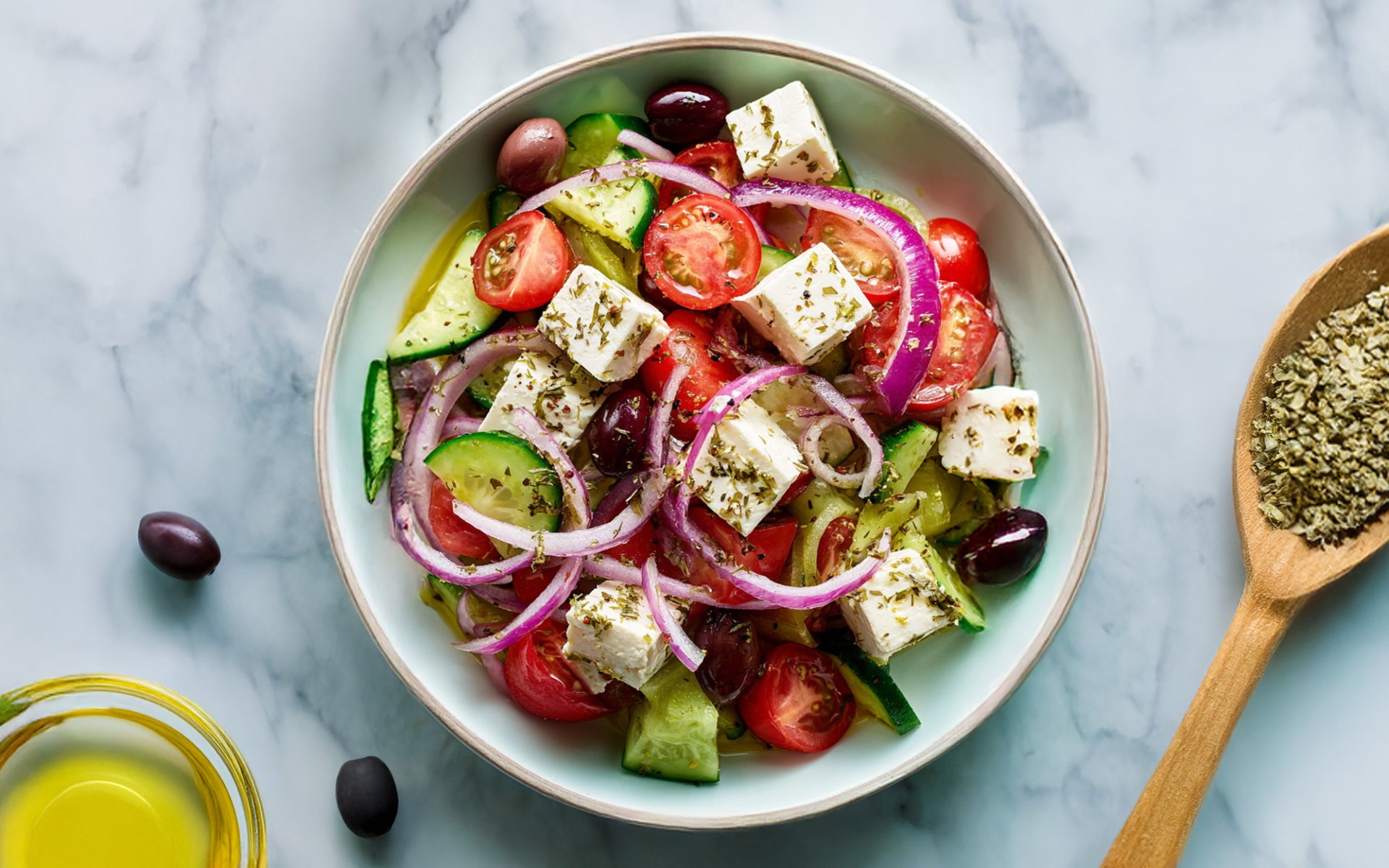Greek Salad

Ancient Origins of Salad
Salads have a long history dating back to ancient Greek and Roman civilizations, when people commonly ate fresh vegetables mixed with olive oil and vinegar. This practice was a basic dietary custom, providing essential nutrients and refreshment.Although salads themselves have existed for millennia, Greek Salad as we know it today developed later in Greece. In Greek, it is traditionally called Horiatiki (χωριάτικη σαλάτα), which translates to village salad or peasant salad. The name reflects the dishs humble origins, as it was born from the daily lives of farmers and rural communities.
From Rural Tradition to National Dish
According to legend, Greek Salad began as a simple summertime meal for farmers, made with locally available ingredients that thrived in the Mediterranean climate. Core ingredients included cucumbers, tomatoes, onions, black olives (especially Kalamata olives, native to Greece), and feta cheese, all drizzled with extra virgin olive oil and sprinkled with dried oregano.
Interestingly, tomatoes were a later addition to the dish. Since they are not native to Greece, tomatoes were first introduced to Europe from the Americas in the late 16th century and reached Greece in the early 19th century. Their arrival marked a turning point in Greek cuisine, as tomatoes permanently transformed the flavors of Greek dishes, including the Greek Salad.
Initially, tomatoes were viewed with suspicion in Europe and were even called poison apples. But once Greeks began cultivating and eating them, they discovered that tomatoes were not only safe but also delicious and nutritious. From then on, tomatoes became a key ingredient in Greek Salad.
Mediterranean Lifestyle and Global Spread
In its early days, Greek Salad was a seasonal dish, eaten mainly by rural families from early spring through mid-autumn to take advantage of fresh harvests. More than just a meal, it symbolized the Mediterranean way of life, which emphasizes healthy eating and local, natural ingredients.
Over time, Greek Salad spread worldwide through Greek restaurants abroad, migration, and increasing global interest in the Mediterranean diet.
The Mediterranean diet was first introduced to international audiences in 1975 by American biologist Ancel Keys and chemist Margaret Keys, inspired by the traditional eating habits of Greece, Italy, southern France, and Spain.
Adaptations Around the World
As Greek Salad traveled beyond Greece, it was adapted to suit different local tastes and cultures. In much of Europe, the salad remains close to the original recipe, though sometimes other cheeses are used in place of feta.
In the United States, the dish was transformed by the addition of leafy greens, aligning with the American style of salad, though this significantly altered the traditional conceptleading to some debate between traditionalists and modernists.
In Asia, Greek Salad gained popularity as a health food, especially in Japan, South Korea, and Thailand. Local adaptations often reduce the saltiness of feta or incorporate seasonal leafy greens to match local preferences.
Nutritional Benefits and Scientific Backing
Greek Salad is widely recognized as a nutritious and sustainable dish. Its ingredients offer a range of health benefits:
- Tomatoes provide lycopene, a powerful antioxidant beneficial for heart health.
- Cucumbers supply hydration and essential minerals.
- Onions contain compounds that help reduce inflammation.
- Olive oil is rich in omega-3 fatty acids and antioxidants.
- Feta cheese provides protein and calcium.
- Olives are an excellent source of vitamin E and healthy fats.
Many studies have shown that regular consumption of a Mediterranean dietwhich prominently features Greek Saladmay reduce the risk of heart disease, cancer, diabetes, and Alzheimers disease.
You can also find all the essential ingredients at Rimping Supermarket.


